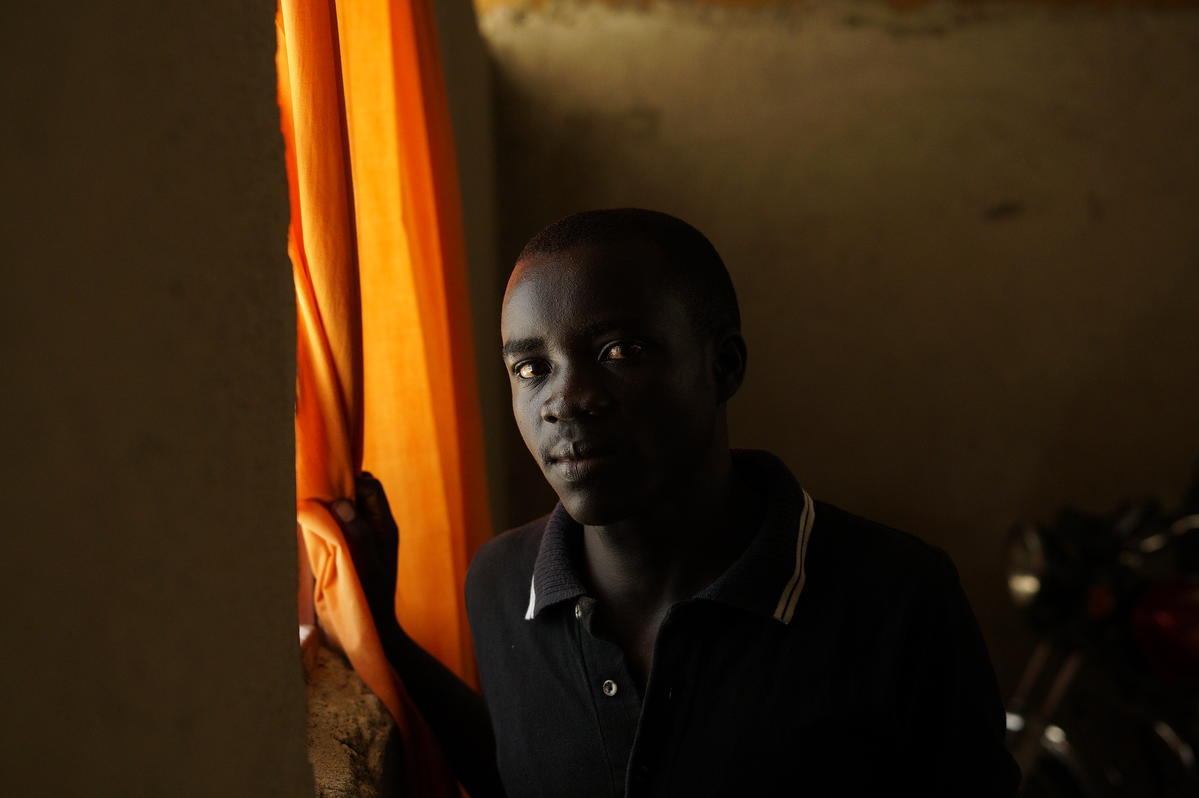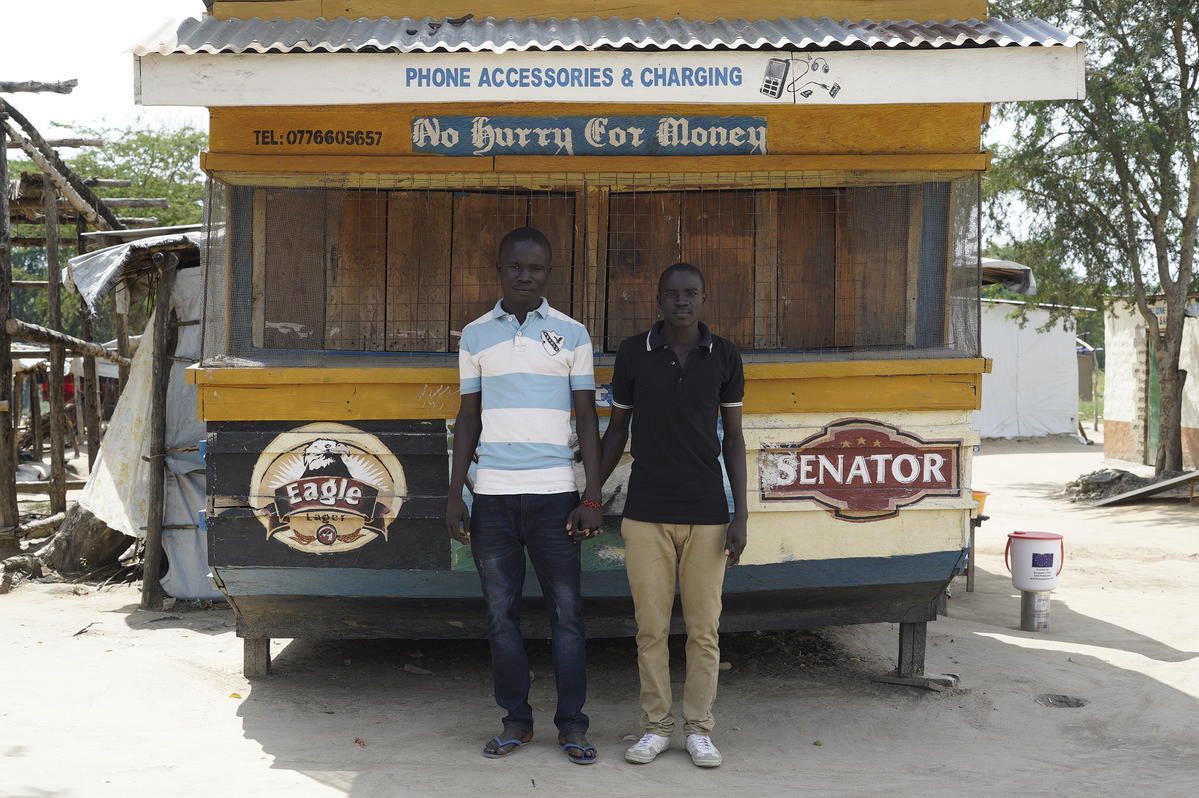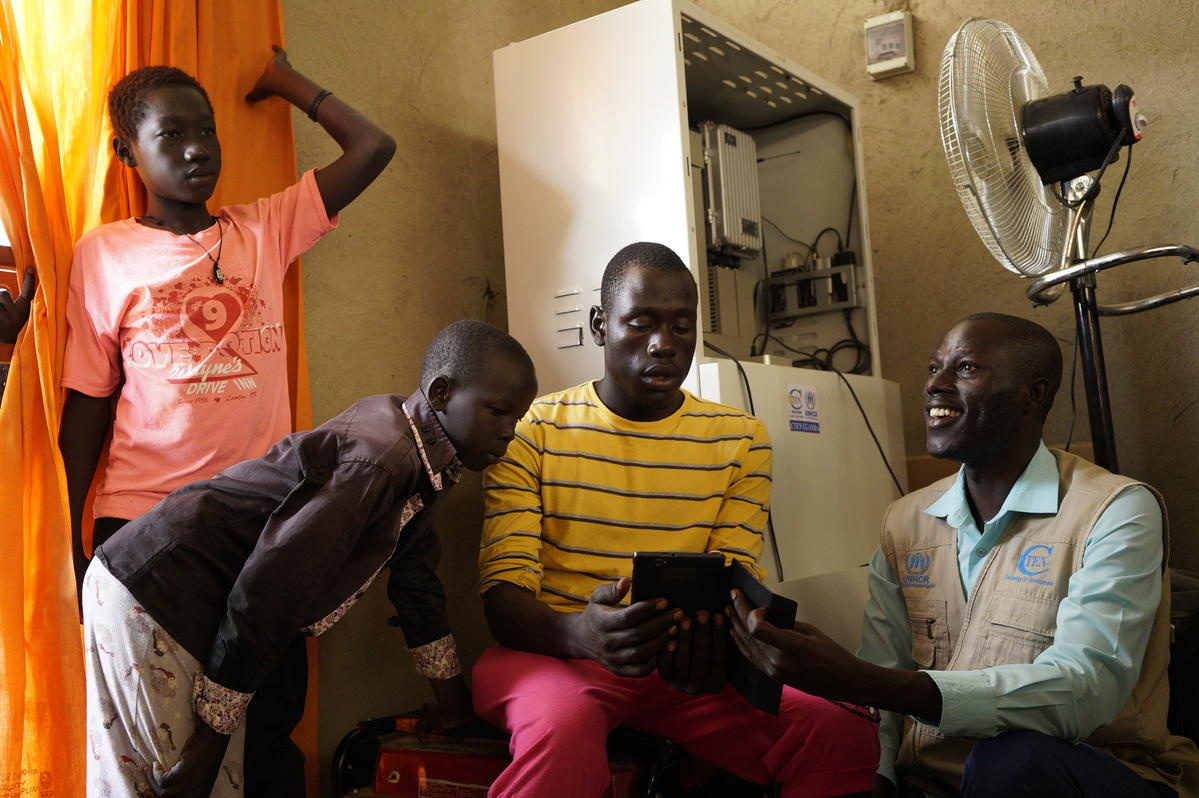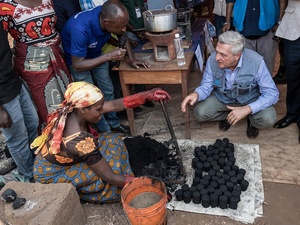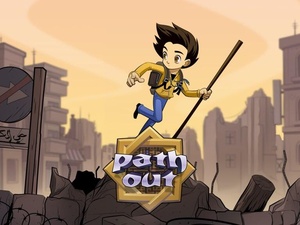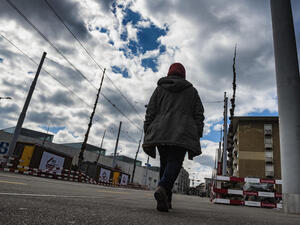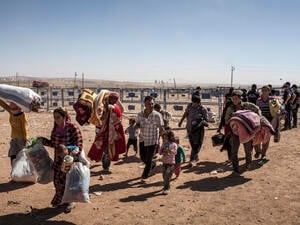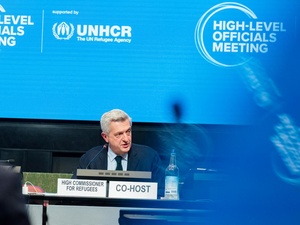For refugees and locals in Uganda, the internet is changing lives
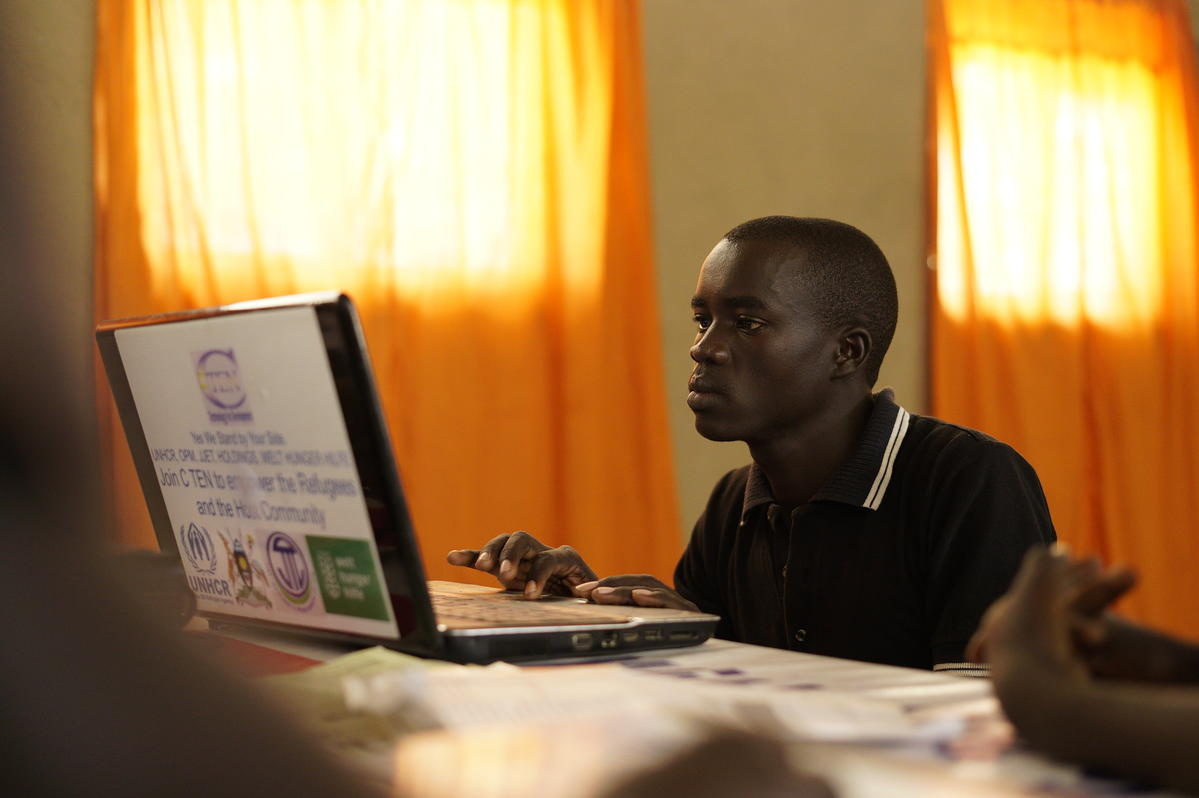
"Being online has really improved people's lives here – for us and the Ugandans," says Richard, 23.
Sudanese refugee Richard Maliamungu strolls through the dusty market. Squinting up at the midday sun, he slows and stops outside a shuttered stall.
Here, in Rhino Camp Settlement, Richard hopes to open a business selling phones to fellow refugees. It is a dream only possible since internet access arrived in this remote part of northern Uganda.
“Being online has really improved people’s lives here – for us and the Ugandans,” says Richard, 23, who came up with the idea for his business together with classmates while studying for an online course in social enterprise this August. “We see that in the community people want to create businesses, they want to study. That’s possible now we have internet.”
“Being online has really improved people’s lives here."
Richard fled escalating violence near his home in South Sudan in February 2017. He is just one of over a million mainly South Sudanese refugees to enter Uganda in two years, swelling the country’s refugee population to become the largest in Africa.
Praised for its progressive policies, Uganda allows refugees to work, start businesses and own property. However, the scale of recent arrivals has strained already overstretched regional resources. This, coupled with poor or non-existent mobile phone coverage, meant that until recently refugees were at risk of languishing in remote settlements.
In response, the UN Capital Development Fund, UNHCR (the UN Refugee Agency) and partners turned to the private sector for help. Together with partner NetHope, they appealed to mobile providers to extend coverage to Uganda’s new refugee settlements. Over the past year, providers Airtel, Africell and MTN have installed cell towers across the region, bringing internet access to millions for the first time.
“We put towers across northern Uganda, tailoring our network plan to suit where the refugee camps are,” says VG Somasekhar, Managing Director of Airtel in Uganda. “The towers ensure that all the population, Ugandans as well as the refugees, are now well served.”
Airtel consulted closely with government agencies and NGOs working with refugees in the region to ensure the extended network would facilitate their work. Improved connectivity helps coordinate distribution of food, medicine and housing, as well as allowing NGOs to distribute cash grants directly to refugees via mobile money transfer.
In this way, the project forms part of a wider response to refugee movements known as the Comprehensive Refugee Response Framework, or CRRF, which calls for a broader range of actors to get involved in the refugee response and stronger partnerships.
“This collaborative approach of government, NGOs and private sector can all serve one objective,” explains Airtel’s Somasekhar. “So the government has given a refugee policy, the NGOs have come to do what they can do and corporate companies like Airtel have ensured that all three work towards one objective.
"So corporates don't need to do separate corporate social responsibility, you can actually collaborate with the governmental agencies to achieve the same objective,” he adds. “I think that’s really an opportunity for all of us. In a very meaningful manner, we’ve been able to impact lives and facilitate change.”
On the ground, that impact has been profound. Improved connectivity has transformed opportunities not only for refugees, but also Ugandans in this previously-isolated northern region. In Rhino Camp Settlement, community initiative CTEN is helping young Ugandans access online learning platforms, transforming prospects for those struggling to afford school fees.
“I’ve learned how to come up with my own business plan."
“Since the refugees arrived I have benefitted and so has the whole community,” says Richard’s Ugandan business parter Gift Munguleni, who also recently completed a social enterprise course with CTEN’s help. “Having internet here has helped us. The youth can now access so much information.”
The fifth child in a family of ten siblings, Gift’s father couldn’t afford to send him to school after the sixth grade. But now that internet has arrived in the area, he can continue to learn, radically improving his life chances.
“I’ve learned how to come up with my own business plan,” says Gift, 22. “If the refugees hadn’t come I was just going to work in the field. That’s how the course and the internet has helped me, and I know it’s going to help me much more than that. It’s going to have a lot of impact for all of us.”
“We are doing such great things since we got internet here,” agrees Matthew Lubari, 26, who volunteers with CTEN to teach digital skills to fellow refugees and locals who dream of careers as scientists, engineers and doctors. “Access to information has become so easy. Community members can come here and access online courses. It has really changed their lives.”
While they seek investment for their mobile phone stall, Richard and Gift will continue to bring the knock-on benefits of internet access to the wider community. The two men are back online, studying for a diploma in public health. They plan to pass on what they have learned to improve hygiene and stop diseases spreading in the Rhino Camp settlement.
“Everybody here, locals and refugees, is thinking how to develop this place,” says CTEN founder Peter Batali, 32, a Sudanese refugee who believes connectivity can allow refugees a role in regional progression. “We have a peaceful place here to learn skills and improve conditions. You could start a business here or a clinic. Whatever the challenge is, you can now go online and find answers.”



